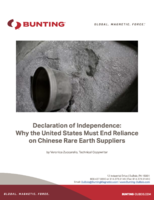IPC Conference targets Eastern European market.
Share:
Press Release Summary:
To support rapidly growing electronics assembly market in Eastern Europe, IPC Conference on Solderability and Reliability for Electronics Assemblies will be held Feb 6-7 2013, in Budapest, Hungary. Event will include technical conference, workshops, tabletop exhibition, and networking opportunities. Technical conference will cover topics such as solder paste selection in lead-free processes, measuring printed solder paste volume, and placement and reflow in solder joints.
Original Press Release:
Gaining a Competitive Edge in Eastern Europe's Fast-growing Electronics Assembly Market
IPC event to feature technical conference, case studies, workshops and tabletop exhibits
BANNOCKBURN, Ill., USA, — To support the rapidly growing electronics assembly market in Eastern Europe, IPC — Association Connecting Electronics Industries® will hold “IPC Conference on Solderability and Reliability for Electronics Assemblies” on 6-7 February 2013, in Budapest, Hungary. This two-day event will include a technical conference, workshops, a tabletop exhibition and networking opportunities to help attendees gain insight into new technologies and trends in electronics manufacturing services in Eastern Europe.
“Building upon the past two conferences in Budapest, this conference will focus on how IPC standards can be used as a resource for improving quality, making better materials choices and achieving the ‘perfect’ solder joint,” said Lars Wallin, IPC European representative and conference presenter. “New this year and as an added bonus, our panel of invited technical experts will present case studies so attendees can learn about real solutions through first-hand experiences.”
This year’s technical conference will cover a wide range of topics including: design and process control for package-on-package assemblies, solder paste selection in lead-free processes, measuring printed solder paste volume, avoiding solderability problems in bare boards, parameters for surface finish selection, placement and reflow in solder joints, and the effects of heat and moisture on passive and active electronic components. In addition, industry experts will provide insight into EMS growth in central Eastern Europe, environmental trends and legislation, and relevant industry standards to use throughout production.
Preceding the conference, workshops will be held in the morning on 6 February. Dr. Thomas Ahrens, Trainalytics GmbH, will address lead-free solder joint rework and repair; industry consultant Bob Willis will address printed board inspection and quality control for BMC, LGA and QFN designs and steps for practical failure analysis; IPC European Representative Lars Wallin will provide information on solder joint troubleshooting and demands for producing IPC Class 3; and IPC Director of Government Relations and Environmental Policy Fern Abrams will cover conflict minerals.
For more information on IPC Conference on Solderability and Reliability for Electronics Assemblies in Budapest or to register, visit http://www.ipc.org/european-conference.
The event will also feature tabletop exhibits. For details on the tabletop exhibits and sponsorship opportunities, contact Maria Labriola, IPC manager of trade show sales, at MariaLabriola@ipc.org or +1 847-597-2866, or Lars Wallin, IPC European representative, at LarsWallin@ipc.org or +46 8 26 10 07.
About IPC
IPC (www.IPC.org) is a global industry association based in Bannockburn, Ill., dedicated to the competitive excellence and financial success of its 3,300 member companies which represent all facets of the electronics industry, including design, printed board manufacturing, electronics assembly and test. As a member-driven organization and leading source for industry standards, training, market research and public policy advocacy, IPC supports programs to meet the needs of an estimated $2.02 trillion global electronics industry. IPC maintains additional offices in Taos, N.M.; Arlington, Va.; Stockholm, Sweden; Moscow, Russia; Bangalore, India; and Shanghai, Shenzhen and Beijing, China.




